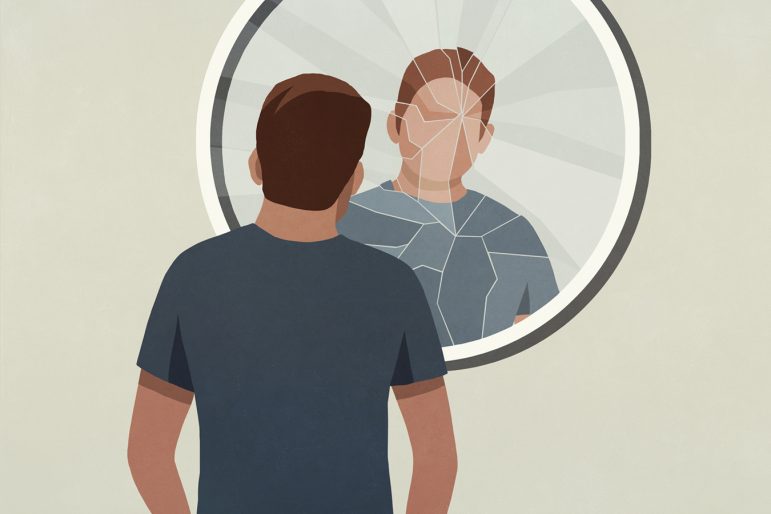In her second year at Dominican University, Julia Reinhard started to feel the loneliness creep in.
Like many college students, the pandemic meant hours and hours of remote learning. Reinhard tried to break free of the isolation by talking regularly with a friend, as well as faculty, staff and a counselor.
Building connections with people she could trust served her well after graduating last year. It also aided her as she transitioned to her career, now working as aide to freshman Marin County Supervisor Mary Sackett.
“It can come in waves,” said Reinhard, referring to the emotional swings after graduating from the San Rafael school. “Especially for me, post-graduation, Election Day hadn’t happened yet, and I was unsure what would happen next. But I had a balance of people who supported me and work that was meaningful.”
Reinhard successfully navigated the leap from college to working life, but for many young professionals, the path to work has been paved with more than a few thorns. Adjusting to the workplace has never been easy – who hasn’t encountered disgruntled coworkers, angry bosses or office politics, all while struggling to balance the demands of career and personal life.
What’s different now is that young people in California and elsewhere, primarily in Generation Z, are so mentally and emotionally drained in the workplace that they often look for the exits after they’ve barely walked through the doors.
A survey of 22- to 28-year-olds by the Mary Christie Institute found that more than half of young professionals needed help for emotional or mental health problems in the past year, with 43% being screened for anxiety and 31% for depression. Almost half of young professionals believed their workplace had taken a negative toll on their mental health over the past year, and even more reported burnout at least once a week. Of those who experienced burnout, 42% said they planned to leave their job within the next year.
It wasn’t all bad, however. More than half of respondents felt their mental health was better than it was in college – although they were evenly split as to how well their university prepared them for the impact of the workplace.
Whether it’s anxiety due to living through the pandemic, growing up on social media, or recognition that they may never achieve the financial success of their parents, these overwhelming mental health challenges are fast becoming a defining characteristic of the latest cohort of young workers.

It’s serious business. And if colleges and companies aren’t paying more attention to the well-being of this generation, it could have consequences for aspiring professionals and economic growth as companies look to fill key positions, said Joshua Kahn, associate director of research and public policy at the National Association for Colleges and Employers.
“Historically, employers didn’t care about these things … the thinking was that if they can’t do the job, we’ll get someone who will,” said Kahn, who noted that a recent association survey found that 86% of their member companies were offering counseling programs. “Now, with the labor market so tight and unemployment so low, I really do think employers are recognizing how important retention of employees is.”
For many employers, that could mean leadership setting clearer expectations in the workplace and taking a more thoughtful approach to helping young people shift from school to work – work that just a few years ago may have been only remote. As they re-emerge from the pandemic and meeting online, younger employees may be uncertain how to interact in an in-person office setting and may be “ruffling some feathers,” said Tess Brigham, a San Francisco-based life coach and therapist who works with young professionals and corporate clients.
Rather than just “throwing a manual at you and saying here you go, it’s on the organizations to ask themselves, how do we do this differently?” she said.
“It’s just like I always tell parents; it’s always on the adults to be the parent, just as it’s on companies to change this dynamic.”
The youngest generation wants an employer willing to develop them, but they also desire some freedom, said Alexandra Von Tiergarten, district president of Robert Half International, a human resource consulting firm. Tiergarten applauded entry-level professionals for sharing how their mental health may be impacting their job. The onus, she said, is on the older generation to educate themselves and be open to new ways of thinking, rather than assuming recent graduates will follow in the previous generation’s footsteps.
It might be tempting to dismiss this as Gen Z angst or a lack of grit, but it’s unwise to underestimate the tenacity and ingenuity of youth who understand the importance of a side hustle and grew up in a society with few guarantees.
“They want companies to walk the walk and talk the talk,” Brigham said. “They won’t stick around if they don’t.”
Reinhard, the political aide who benefited from a specialized peer mentoring program at her alma mater, isn’t planning to leave her job anytime soon. Navigating the jump from school to her career – after a pandemic and years of virtual everything – taught her the power of seeking help and the importance of prioritizing mental health.
“It’s a hard thing for my generation with all the texting, but whenever people ask me for advice and send a text to start a conversation – I encourage folks to just pick up the phone,” she said. “Sometimes, hearing someone’s voice can make a big difference.”
